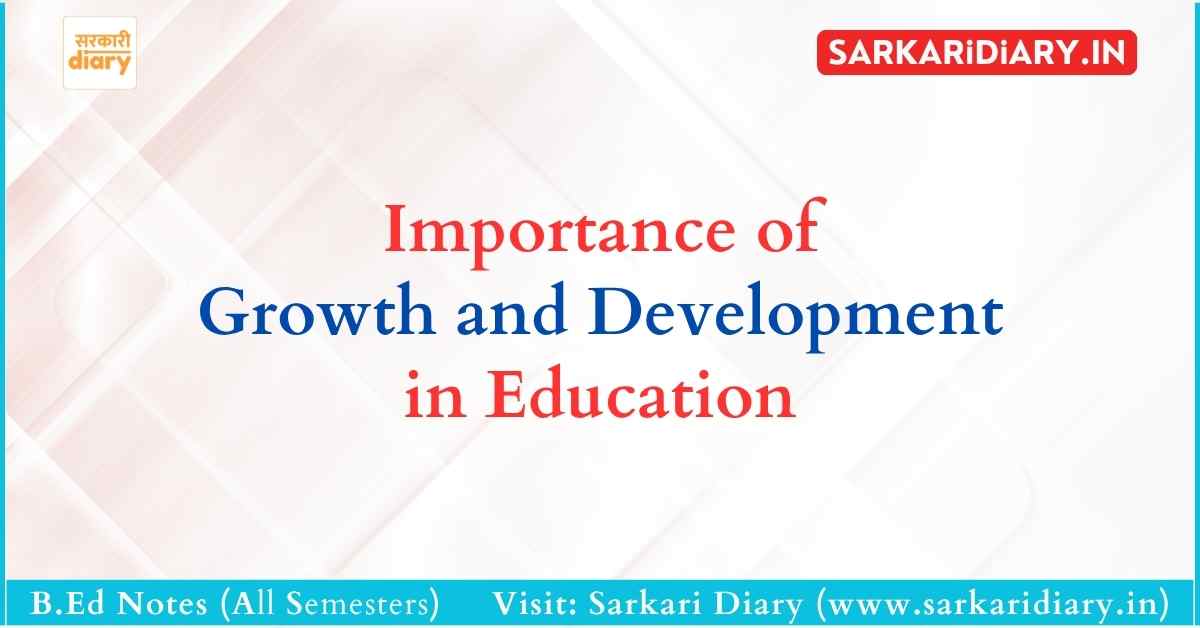Importance of Growth and Development in Education: The primary goal of education is to bring about positive, meaningful, and lasting changes in students—especially in the way they think, behave, and interact with the world. To achieve this goal effectively, educators must have a thorough understanding of growth and development at various stages of a child’s life.

Why Understanding Growth and Development Is Essential
Growth and development are foundational concepts in educational psychology. They provide insights into how learners evolve physically, mentally, emotionally, and socially, enabling teachers to tailor their methods accordingly.
Key Reasons for Its Importance in Education:
| Age-appropriate learning | Understanding what a child can or cannot grasp at a specific age |
| Effective curriculum planning | Designing lessons that align with learners’ developmental needs |
| Improved teaching strategies | Adapting teaching methods based on physical, emotional, and cognitive stages |
| Holistic student development | Encouraging balanced growth across intellectual, moral, social, and physical dimensions |
| Timely identification of learning challenges | Recognising delays or issues early for timely intervention |
Growth and Development: A Lifelong Journey
Development is not restricted to childhood or adolescence. It is a lifelong and continuous process, extending from conception to old age. While growth (physical increase) may stop after a certain age, development—in terms of learning, adapting, and refining personality—continues throughout life.
Therefore, striving for perfection and improvement in various dimensions of personality should be an ongoing effort for every individual.
Principles Guiding Growth and Development
Several established psychological principles guide the process of growth and development. Understanding these helps educators provide more effective learning experiences.
| General to Specific Responses | Children first respond in a general manner before showing specific responses (e.g., waving before using fingers to point) |
| Integration Principle | Different abilities and behaviours gradually combine into coordinated patterns |
| Continuity of Development | Learning experiences should be progressive and build upon previous stages |
| Individual Differences | Teachers must recognise and address the unique pace and style of each learner |
These principles provide a framework for designing classroom instruction, assessment strategies, and supportive interventions.
Role of Teachers in Supporting Growth and Development
Teachers play a vital role in shaping students’ lives beyond academics. By aligning teaching practices with principles of development, they can:
- Encourage curiosity and creativity
- Promote emotional stability
- Build strong interpersonal skills
- Foster lifelong learning habits
This creates an environment where students are not only academically successful, but also personally and socially competent.
Conclusion
Understanding and applying the concepts of growth and development are essential for any effective educational system. They enable educators to guide students through their natural developmental path while providing the right support at the right time. This, in turn, leads to the all-round development of the learner, fulfilling the true purpose of education.